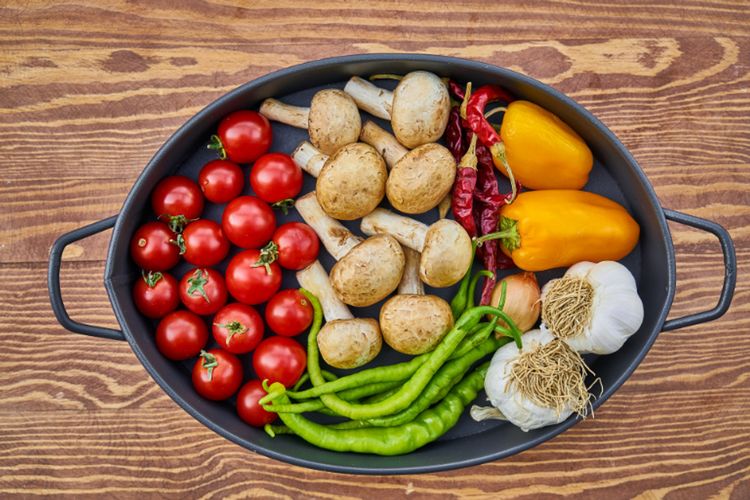Random hives, being fine eating a particular food to throwing it up in a matter of two weeks, horrendous seasonal allergies year-round are all potential symptoms of histamine intolerance. Histamine intolerance isn’t what we’d normally think of an intolerance. You’re not allergic to histamine. It is actually a condition where your body is not able to break down histamine. This causes symptoms like the ones I listed above and often many of the these:
Headaches/migraines
Difficulty falling asleep
Hypertension
Vertigo or dizziness
Arrhythmia, or accelerated heart rate
Difficulty regulating body temperature
Anxiety
Nausea, vomiting
Abdominal cramps
Flushing
Nasal congestion, sneezing, difficulty breathing
Abnormal menstrual cycle
Hives
Fatigue
Tissue swelling
HOW HISTAMINE BUILDS UP
The question becomes, “What causes histamine to build up in my body?” As with everything in life, it’s not just one thing but a combination of many things. Contributing factors include
- Leaky Gut
- SIBO
- Consuming an abundance of foods that limit the breakdown of histamine foods
- Consuming foods high in histamine
- High caffeine intake for a long period of time
- Stress
- Nutritional deficiencies
- Certain medicationsNon-steroidal anti-inflammatory drugs (ibuprofen, aspirin)
- Antidepressants (Cymbalta, Effexor, Prozac, Zoloft)
- Immune modulators (Humira, Enbrel, Plaquenil)
- Antiarrhythmics (propanolol, metoprolol, Cardizem, Norvasc)
- Antihistamines (Allegra, Zyrtec, Benadryl)
- Histamine (H2) blockers (Tagamet, Pepcid, Zantac)
HOW TO REDUCE HISTAMINE BUILD UP AND START FEELING NORMAL AGAIN
Knowing what led up to this point is great, but now it’s time to stop feeling like you’re playing Russian Ruellet with every meal. Along with expert help. here’s how to start feeling better.
- Stop consuming the foods that limit the are high in histamine and also the ones that limit the breakdown of histamine.
- Take DAO with every meal to help breakdown histamine and limit any histamine that is consumed from entering the body.
- Eat fresh, healthy foods that are prepared just before cooking.
- Get 7-9 hours of sleep every night
- Heal your leaky gut
- Exercise 3-5 days per week
- Manage your stress
- Address nutritional deficiencies
For the best DAO supplement, addressing leaky gut, and nutritional deficiencies, you’ll want to work with a Functional Medicine or Naturopathic Doctor and health coach specifically trained in Histamine Intolerance.
FOODS TO AVOID AND FOODS TO ENJOY
Before we dive into the do's and don'ts, I want to talk about how to make this diet work. The absolute best thing you can do is eat extremely fresh. Buy your produce locally when possible and never pre-chopped. Frozen produce is a great way to keep food on hand for busy weeks. If you like to meal prep, you'll be freezing your leftovers versus keeping them in the fridge. Okay, time to dive into what this temporary diet (3-6 months) will look like.
Foods to avoid are:
- Fermented alcoholic beverages, especially wine, champagne, and beer
- Fermented foods: sauerkraut, vinegar, soy sauce, kefir, yogurt, kombucha, etc
- Vinegar-containing foods: pickles, mayonnaise, olives
- Cured meats: bacon, salami, pepperoni, luncheon meats, and hot dogs
- Soured foods: sour cream, sour milk, buttermilk, soured bread, etc
- Dried fruit: apricots, prunes, dates, figs, raisins
- Certain fruits: banana, papaya, pineapple, strawberries
- Most citrus fruits
- Aged cheese including goat cheese
- Nuts: walnuts, cashews, and peanuts
- Vegetables: avocados, eggplant, spinach, and tomatoes
- Smoked fish and certain species of fish: mackerel, mahi-mahi, tuna, anchovies, sardines, and shellfish
- Gluten
- Many artificial preservatives and dyes
- Caffeinated drinks (sorry): energy drinks, black tea, mate tea, and green tea
Foods to enjoy are:
- Animal proteins: any not listed above including beef, bison, lamb, poultry
- Freshly caught or frozen: salmon, cod, halibut, and many more
- Eggs
- All vegetables except the ones listed above
- All fruits not listed above including melons, grapes, apples, plums, peaches, pears, mango, kiwi, and others
- Gluten-free grains (in very limited amounts. They are hard on our intestinal integrity)
- Coconut products including milk, virgin oil, and shredded coconut
- Hemp milk
- Extra virgin olive oil
- Nuts and seeds including sunflower, chia, flax, and pumpkin
- All herbs and spices
- Herbal teas
While the change is an adjustment, you'll feel so much better and after a 3-6 months you can slowly start reintroducing foods until you have a more normal, healthy diet again.
Do you have experience with a low-histamine diet? I would love to hear your experience!
Sources:
https://www.ncbi.nlm.nih.gov/pmc/articles/PMC5346110/
https://www.ncbi.nlm.nih.gov/pubmed/30552302
https://www.ncbi.nlm.nih.gov/pubmed/10779289







